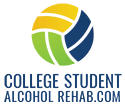Understanding the prevalence of alcohol addiction in teens is the first step toward addressing this critical issue. It is essential to acknowledge that alcohol abuse among teenagers is not an isolated problem but a widespread concern affecting many families and communities. According to the National Institute on Alcohol Abuse and Alcoholism, over 4.2 million adolescents in the United States between the ages of 12-17 reported past-month alcohol use in 2019 alone. This statistic highlights the urgent need for effective options for a teen substance abuse treatment center.
Understanding Alcohol Addiction in Teens
Many factors contribute to teenage alcohol addiction, including peer pressure, stress, mental health issues, family history, and easy access to alcohol. Adolescents may turn to alcohol as a means of coping with their problems or fitting in with their peers. However, excessive alcohol consumption can lead to harmful consequences such as health problems, poor academic performance, and risky behaviors. Teen substance addiction treatment can help address the underlying causes and side effects of alcohol addiction.
Signs of Alcohol Addiction in Teens
Alcohol addiction in teens is a complex issue that involves various factors, such as peer pressure, family history, and mental health issues. Recognizing the signs of alcohol addiction in teenagers can be the key to early intervention and treatment of alcohol addiction.
Some common signs of alcohol addiction in teens include:
- Changes in behavior and mood swings
- Decline in academic performance
- Neglecting personal hygiene
- Withdrawal from family and friends
- Changes in eating and sleeping habits
- Getting into trouble with the law or authority figures
If you notice any of these signs in your teen, it is crucial to seek professional help from a reputable substance abuse treatment center.
Treatment Options for Teen Alcohol Addiction
Effective treatment for teenage alcohol addiction requires a comprehensive approach that addresses both physical and psychological factors. A quality teen substance abuse treatment center will offer evidence-based interventions tailored to the individual’s needs. Some common treatment options for teen alcohol addiction include:
- Inpatient treatment – This type of treatment involves living at a facility while receiving 24/7 care and support from medical professionals.
- Outpatient treatment – This option allows teens to live at home while attending therapy sessions and other treatments regularly.
- Cognitive-behavioral therapy (CBT) – CBT is a type of therapy that focuses on identifying and changing negative patterns of thinking and behaviors related to alcohol use.
- Family therapy – This type of therapy involves the whole family in the treatment process, addressing any underlying issues that may contribute to the teen’s addiction.
- Support groups – Peer support groups, such as Alcoholics Anonymous (AA), can be beneficial for teens in recovery by providing a sense of community and accountability.
Furthermore, educational programs aimed at both teens and parents are vital in preventing adolescent alcohol addiction and promoting awareness about the seriousness of this issue.
Teen alcohol abuse does not only affect the individual but also has far-reaching implications on their families, friends, and society. It is crucial to understand these impacts to motivate actions towards addressing this issue with proper adolescent addiction treatment.
Early Intervention Helps
The prevalence of alcohol addiction in teens is a significant concern that calls for collective action. By understanding the scope of the problem, recognizing the signs of addiction, and implementing effective prevention and treatment strategies, we can make a difference in the lives of many teenagers.
Early intervention is critical in dealing with alcohol addiction. If you suspect a teenager is struggling with alcohol abuse, seek help immediately. The sooner the problem is addressed, the better the chances of recovery. Alcohol addiction treatment can help.
